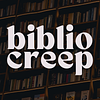Take a photo of a barcode or cover
The Most Influential Sci-Fi Books of All Time (Book Riot, 2021) - NEW VERSION
37 participants (73 books)
Overview
What do we talk about when we talk about science fiction? Is it our hope for the future, or our fear of creating the very thing that will destroy us? If the most influential sci-fi books of all time are any indication, the answer is both.
Since the early 19th century, humanity has been fascinated by its own ability to move goalposts and demolish old boundaries in the dogged pursuit of progress. Our interpretation of that progress frequently shifts between cautious optimism and resignation toward our own doom, due to various social and political climate changes. But even at our most pessimistic, when we collectively felt as if we’d lost some great cosmic game, never, not once, have we ever stopped writing and reading new futures for ourselves. That’s a testament, not only to the staying power of sci-fi, but also to the tenacity of the human race.
The most influential sci-fi books of all time have shaped not just science fiction and its myriad sub-genres, but horror, fantasy, and manga, as well. Filmmakers have drawn inspiration for the stories between their covers, and real-world STEM developments have been made in their names. Without these books, for better or worse, our world would not be what it is today.
https://bookriot.com/the-most-influential-sci-fi-books-of-all-time
https://bookriot.com/the-most-influential-sci-fi-books-of-all-time
The Most Influential Sci-Fi Books of All Time (Book Riot, 2021) - NEW VERSION
37 participants (73 books)
Overview
What do we talk about when we talk about science fiction? Is it our hope for the future, or our fear of creating the very thing that will destroy us? If the most influential sci-fi books of all time are any indication, the answer is both.
Since the early 19th century, humanity has been fascinated by its own ability to move goalposts and demolish old boundaries in the dogged pursuit of progress. Our interpretation of that progress frequently shifts between cautious optimism and resignation toward our own doom, due to various social and political climate changes. But even at our most pessimistic, when we collectively felt as if we’d lost some great cosmic game, never, not once, have we ever stopped writing and reading new futures for ourselves. That’s a testament, not only to the staying power of sci-fi, but also to the tenacity of the human race.
The most influential sci-fi books of all time have shaped not just science fiction and its myriad sub-genres, but horror, fantasy, and manga, as well. Filmmakers have drawn inspiration for the stories between their covers, and real-world STEM developments have been made in their names. Without these books, for better or worse, our world would not be what it is today.
https://bookriot.com/the-most-influential-sci-fi-books-of-all-time
https://bookriot.com/the-most-influential-sci-fi-books-of-all-time
Challenge Books
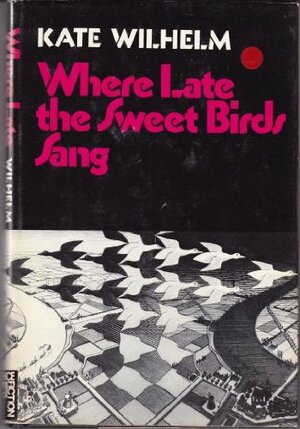
Where Late the Sweet Birds Sang
Kate Wilhelm
Kate Wilhelm’s Where Late the Sweet Birds Sang imagines a post-apocalyptic future in which humanity has attempted to circumvent rampant infertility through a dedicated cloning program. The novel made Wilhelm the second woman ever to win the Hugo Award for Best Novel — following Ursula K. Le Guin, who won for both The Left Hand of Darkness and The Dispossessed — but its influence may pale in comparison to that of the author, who co-founded the Clarion Workshop.
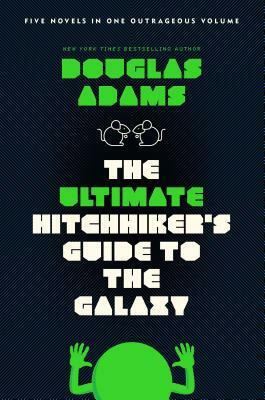
The Ultimate Hitchhiker's Guide to the Galaxy
Douglas Adams
Whether you’re cheeky enough to call a five-book series — six, if you count Eoin Colfer’s And Another Thing… — a “trilogy,” base an entire series around the adventures of one bumbling Englishman who stumbles unawares into being the last living Earth-man, or make the Earth’s destroyers into aliens who write poetry so bad it literally hurts, nobody does sci-fi comedy quite like Douglas Adams. The Hitchhiker’s Guide to the Galaxy trilogy has assisted in naming two separate species, two asteroids, and a NASA project, making it five — or six — of the most influential sci-fi books of all time…and that’s without mentioning the ubiquity of 42.
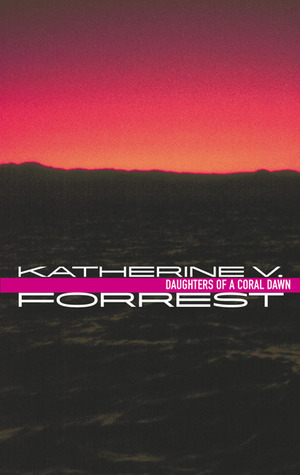
Daughters of a Coral Dawn
Katherine V. Forrest
It’s a story reminiscent of Laura Lam’s Goldilocks: a group of women set out from Earth to colonize a distant planet, away from patriarchal influence and persecution. After establishing her Eden, however, leader Megan finds herself conflicted when another, mixed-gender group of settlers — led by the devastatingly attractive Laurel — discovers her people and proposes an integration of their communities. An early work of lesbian sci-fi that gave way to a Lambda Literary Award–winning sequel, Daughters of a Coral Dawn is an oft-overlooked classic in the genre.
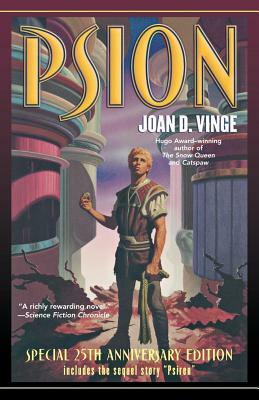
Psion
Joan D. Vinge
Two years before Neuromancer, there was Psion. Joan D. Vinge’s trilogy — Psion, Catspaw, and Dreamfall — centers on Cat, a teenage alien-human hybrid and street urchin who trains in a government program as a special investigator after his telepathic abilities are discovered upon his most recent arrest. Recognized by the American Library Association as one of the Best Books for Young Adults, this 1982 release has inspired generations of young sci-fi fans to delve deeper into the genre.
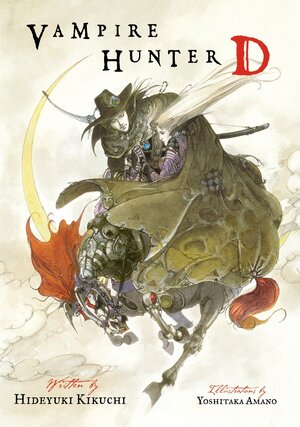
Vampire Hunter D
Hideyuki Kikuchi
From the bestselling author of Demon City Shinjuku and the famed illustrator of the first six Final Fantasy games comes Vampire Hunter D, the long-running light novel series about a half-vampire outcast who hunts down the Nobles — read: elite vampires — who once ruled his world. Having spawned 26 light novel sequels and counting, Vampire Hunter D offers up a thrilling, East-meets-Weird-West fusion that has inspired countless creatives since its 1983 debut.
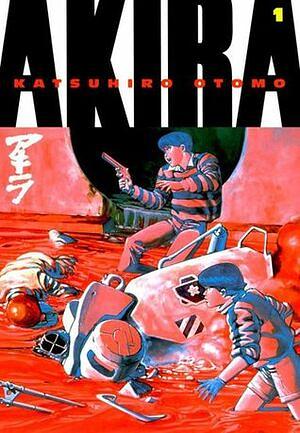
Akira, Vol. 1
Katsuhiro Otomo
William Gibson may be the father of English cyberpunk literature, but Katsuhiro Otomo deserves the credit for birthing its Japanese cousin. The basis for the 1988 anime film of the same name, Akira centers on two teenage bikers whose lives in post–World War III Tokyo are upended when one of them develops psychic powers after being exposed to a government experiments.
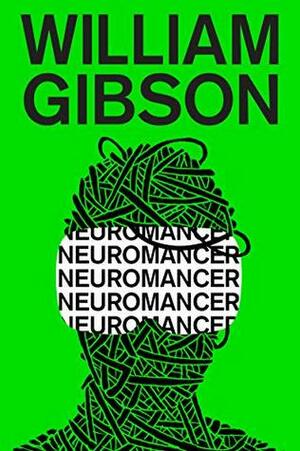
Neuromancer
William Gibson
How does a novel become synonymous with an entire sub-genre? Science fiction aficionados know that William Gibson’s 1984 novel embodies the very essence of cyberpunk. Influential enough to warrant its own Encyclopedia Britannica entry, Neuromancer established cyberpunk’s primary tropes and familiarized the sci-fi community with the concept of “cyberspace.”
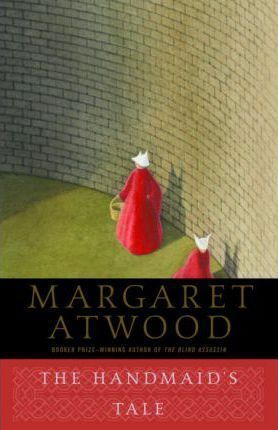
The Handmaid's Tale
Margaret Atwood
Margaret Atwood’s dystopian bestseller continues to draw comparisons in contemporary politics, nearly 40 years after it first appeared on store shelves. And, much like Nineteen Eighty-Four, many of those comparisons ignore critical features — such as the white supremacy at the heart of Gilead — that make The Handmaid’s Tale such a grim reminder of how close the U.S. often comes to a hellish tipping point.
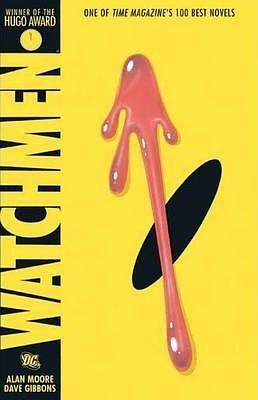
Watchmen
Alan Moore
If you’re a fan of Invincible, The Boys, or any other series that depicts superheroes as, well, not so super, you have Alan Moore and Dave Gibbons’s Watchmen to thank. This limited series questioned the moral superiority and valor of superheroes, presenting them as power-drunk titans, reluctant saviors, and questionable guardians of humanity — an angle that creators are still exploring today.
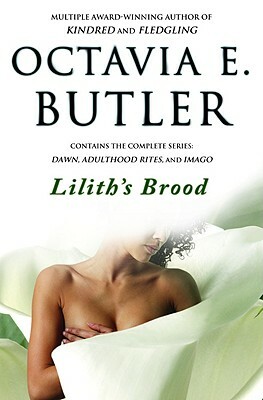
Lilith's Brood
Octavia E. Butler
Originally published in a single volume as Xenogenesis in 1989, Lilith’s Brood compiles three connected novels — Dawn, Adulthood Rites, and Imago — from Octavia E. Butler. The story here centers on what’s left of humanity, “rescued” from a nuclear-scarred Earth by the Oankali: a many-tentacled alien race who wish to breed with humans to introduce cancer to their species. It’s weird. It’s intense. And it’s kind of sexy, if tentacle sex and monster…erm…loving is your thing. I’m not saying that Lilith’s Brood was the start of the monster-loving trend, but I’m not not saying it, either.
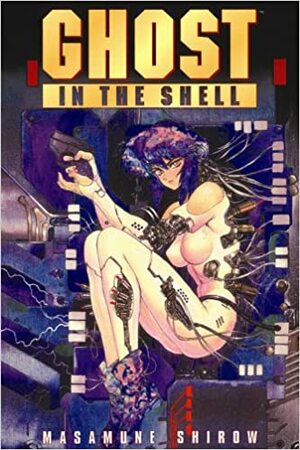
Ghost in the Shell Volume 1 2nd edition TPB
Shirow Masamune
Another Japanese cyberpunk series, Masamune Shirow’s Ghost in the Shell has proven to be one of the most influential manga and anime franchises of all time. As The Guardian‘s Steve Rose pointed out back in 2009, no less than the Wachowski sisters, James Cameron, and Steven Spielberg have drawn inspiration from Shirow’s manga and its animated adaptations.
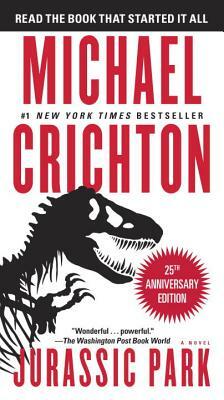
Jurassic Park
Michael Crichton
Speaking of Spielberg, 1993’s Jurassic Park brought millennials’ newfound love of dinosaurs — a love stoked, in part, by 1988’s The Land Before Time, which Spielberg produced — to more-grown-up audiences. We might never have gotten to see Dr. Grant and Ellie Sattler run for their lives on the big screen if it weren’t for this 1990 novel from sci-fi-thriller author Michael Crichton, however.
